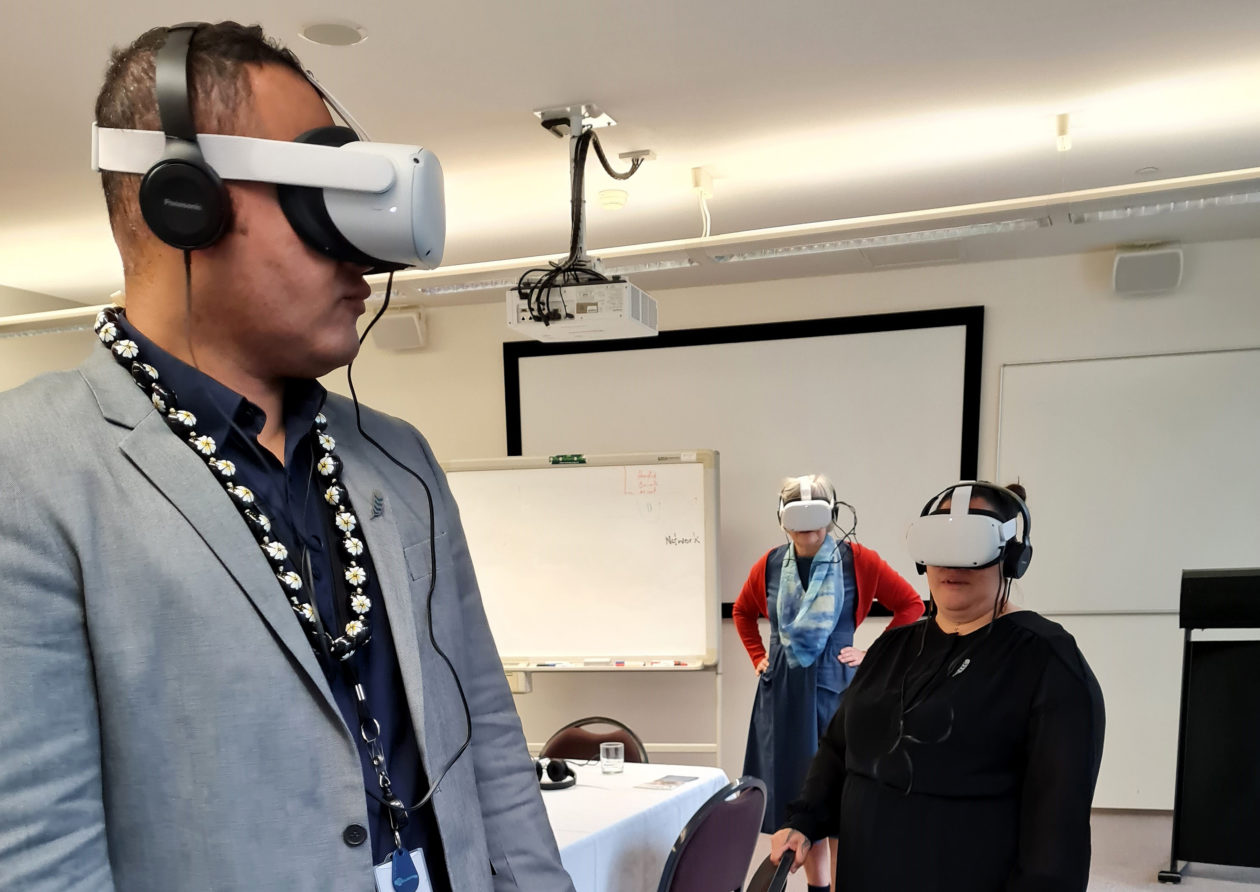A powerful tool and NZ-first: Education Dementia Immersive Experience

We know that every three seconds, someone around the world is diagnosed with dementia.
But many of us will never really understand or fully appreciate how dementia affects someone living with the condition.
That is why the Educational Dementia Inversive Experience (EDIE) is a powerful tool, says Portfolio Manager Health of Older People at Te Whatu Ora – Health New Zealand Southern Sharon Adler.
Sharon is one of the few Kiwis to “see” what it is like to experience dementia using state-of-the-art virtual reality.
The Parliamentary Friends of Dementia (pictured above), a cross party group of MPs with an interest in dementia supported by Alzheimers NZ, recently invited MPs to experience EDIE.
Convenor Michael Wood was joined by fellow Labour MPs, Barbara Edmonds, Terisa Ngobi, Anae Neru Leavasa, Helen White, as well as Nicole McKee (ACT) and Eugenie Sage (Green).
EDIE is co-designed by people with dementia and transports the wearer of a virtual reality headset into the home of someone with dementia.
It is also the first-ever virtual dementia experience in Aotearoa – hosted by highly trained experts from Alzheimers NZ’s Dementia Learning Centre.
“It was impressive. In health and clinical settings, there is always a need for people to be able to walk in another person’s shoes, to better understand their experience or see things from another’s perspective,” says Sharon.
“EDIE really brought that home in quite a realistic way.”
Dementia Learning Centre Director Dr Kathy Peri is delighted to provide an opportunity for health professionals, carers and whānau who are looking after people and loved ones with dementia to see the world from their perspective.
“For many of us, it is difficult to know how to help people with dementia live well if we don’t know what they’re experiencing,” she says.
“Without a better understanding of dementia and how we might help people, we might take away the autonomy of someone with dementia which can cause them to become anxious, depressed, or isolated.
“That is why the EDIE is so crucial – it can open one’s eyes to the little things we can do to make a difference in improving people’s quality of life.”

